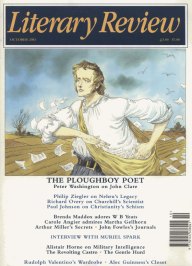Paul Johnson
The Great Divide
The Reformation
By Patrick Collinson
Weidenfeld & Nicolson 170pp £14.99
Reformation: Europe's House Divided 1490-1700
By Diarmaid MacCulloch
Allen Lane The Penguin Press 831pp £25
I WISH HISTORIANS would not seek to enlarge their subjects. The Reformation was a quite specific and limited phenomenon. It began in 1517, when Martin Luther nailed his ninety-five theses against the trade in indulgences to the door of the Castle Church in Wittenberg, an event some Protestants still celebrate as Reformation Day (31 October). It ended in 1563 with the final session of the Council of Trent, which completed the Catholic religious response, or Counter.:. Reformation. Thus restricted, the Reformation becomes manageable and comprehensible. Confusion arises when it is extended to the next historical phase, the Wars of Religion, which broke out in France in 1562, became Europeanised in the Thirty Years War, and ended with the Peace of Westphalia in 1648. These events were not about reforming the Church but deciding, largely for secular reasons, which parts of Europe would be Protestant, which Catholic.
Patrick Collinson begins his short account of the Reformation (50,000 words) with the start of the Great Schism of the Papacy in 1378. He ends it with the 'Glorious Revolution' in Britain in 1688. That is over 300 years, instead of less than fifty, and means that many key matters

Sign Up to our newsletter
Receive free articles, highlights from the archive, news, details of prizes, and much more.@Lit_Review
Follow Literary Review on Twitter
Twitter Feed
How to ruin a film - a short guide by @TWHodgkinson:
Thomas W Hodgkinson - There Was No Sorcerer
Thomas W Hodgkinson: There Was No Sorcerer - Box Office Poison: Hollywood’s Story in a Century of Flops by Tim Robey
literaryreview.co.uk
How to ruin a film - a short guide by @TWHodgkinson:
Thomas W Hodgkinson - There Was No Sorcerer
Thomas W Hodgkinson: There Was No Sorcerer - Box Office Poison: Hollywood’s Story in a Century of Flops by Tim Robey
literaryreview.co.uk
Give the gift that lasts all year with a subscription to Literary Review. Save up to 35% on the cover price when you visit us at https://literaryreview.co.uk/subscribe and enter the code 'XMAS24'